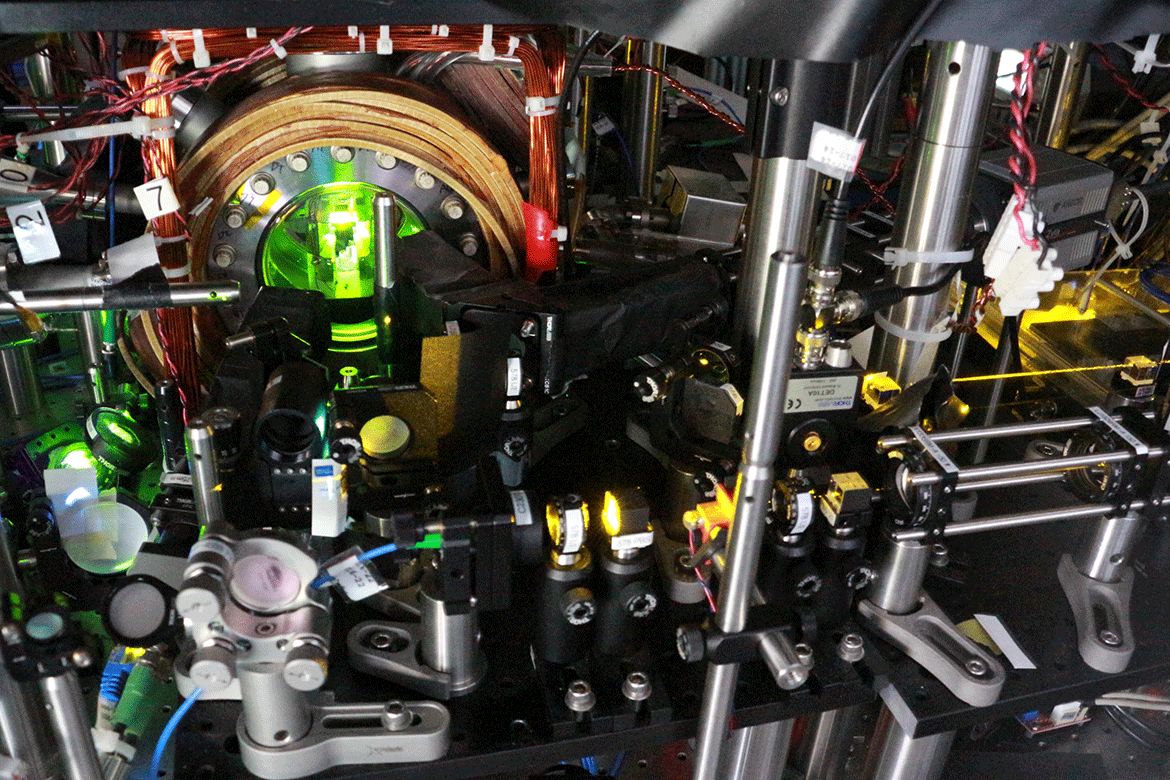NEUROIMMUNOLOGY
Puzzling progress in MS therapy
The causes of multiple sclerosis are obscure. Nevertheless, researchers are discovering more and more connections, and are finding new uses for existing drugs.

The artist Hannah Laycock, who suffers from MS, perceives her illness as a fog between herself and the world. | Photo: Hannah Laycock
In recent years several new drugs have been approved that have an impact on the neurodegenerative disease multiple sclerosis (MS). These drugs were often originally designed to combat other illnesses, and the precise mechanisms behind how they act remain unclear. In order to be able to develop more targeted, more effective therapies, MS researchers are trying to fathom the multifarious causes of this autoimmune disease (see the box ‘Young people are primarily affected’).
Twin studies show that the risk of the disease is at most 30 percent hereditary. “The rest is a result of environmental factors such as nutrition, hygiene and infections”, says Anne-Katrin Pröbstel, a doctor and neuroimmunologist at the University of Basel. Epidemiological studies have already revealed many such influential factors – such as an infection with the Epstein-Barr virus, a lack of vitamin D, and smoking.
Pröbstel is convinced about a further possible cause of MS: an incorrect composition of intestinal flora. Only recently, clear differences emerged in the composition of intestinal bacteria between MS patients and healthy people. When given to mice with MS, the stool of diseased persons triggers a severe case of the disease.
Immune cells migrate to the brain
Pröbstel has been conducting experiments to try and explain how bacteria in the intestine can attack nerve cells in the brain. Specific immune cells that produce antibodies can recognise the bacteria strains associated with MS. These immune cells then migrate to the brain, where they produce neurotransmitters that regulate the immune system.
Pröbstel suspects that such subgroups of immune cells either inhibit or promote inflammation in the brain: “In order to produce a treatment, one could increase the number of benign cells, or eliminate the malignant ones”, she says. Another possibility would be to eliminate harmful strains of bacteria in the intestine in a targeted manner – such as by a change of diet.
A group led by Roland Martin, the head of the Section of Neuroimmunology and MS Research at the Zurich University Hospital, has also recently been making progress: “For the first-ever time, we have been able to show how the combination of a gene and an environmental factor can contribute to MS”. This gene variant, which carries the bland name HLA-DR15, helps to form a special group of regulatory immune cells that react against an infection by the Epstein-Barr virus. However, the same group of immune cells also mistakenly attacks parts of brain cells, which can lead to MS.
A highly promising therapy has now been developed in collaboration with the Wyss Centre in Zurich. It uses these findings to train the harmful immune cells to tolerate the components of the brain cells that currently seem dangerous to them.
For Pröbstel, these results confirm that MS is a multifactor disease that influences the immune system on several levels. According to Martin, this also explains why smoking and a lack of vitamin D are among the risk factors for MS, because they influence the immune system unfavourably. Getting the vitamin D level correct is therefore also a firm component of therapies for people with MS.
Martin believes that ultimately, a combination of therapies will lead to success: “Already today, we can ensure that 80 percent of cases only suffer a mild form of the disease”, In the near future, the hope is that none of those affected by MS will need a wheelchair.




